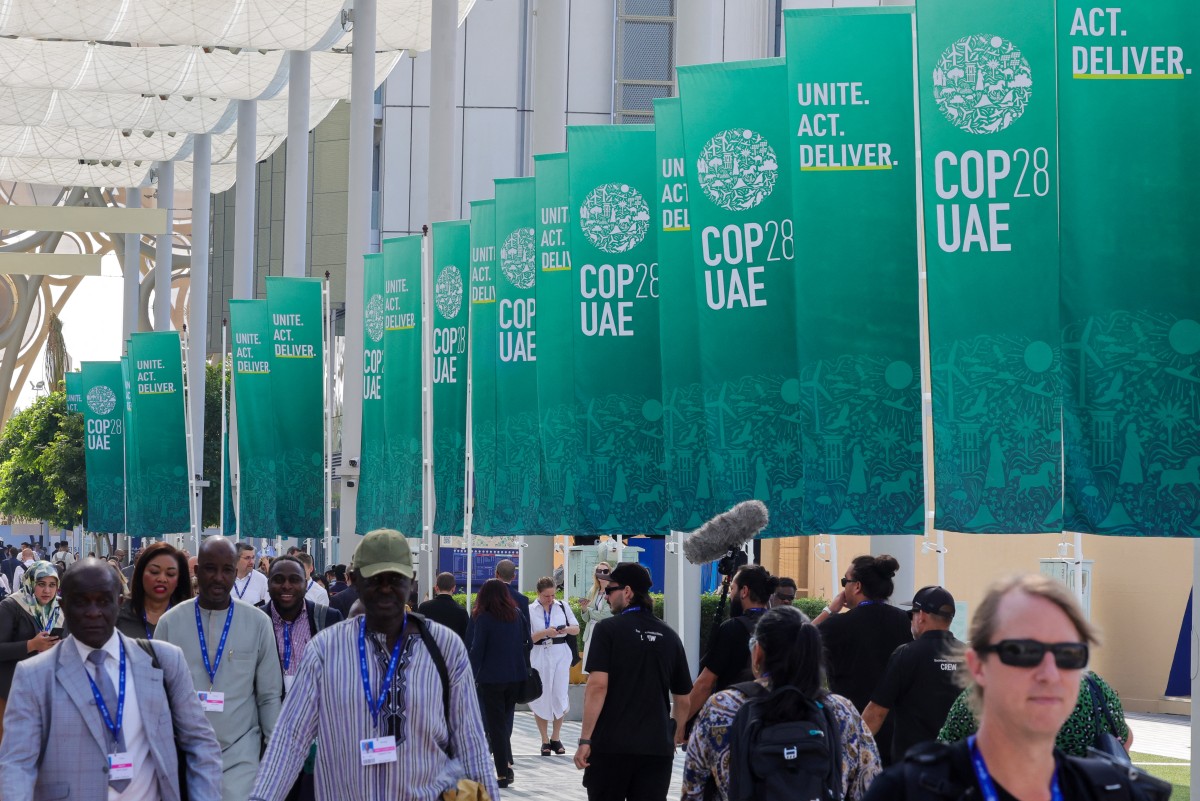Dubai, UAE – China’s climate envoy said on Saturday he was working with other countries to find a compromise over fossil fuels that is acceptable to all sides at the UN’s COP28 conference in Dubai.
Despite efforts by the OPEC oil cartel to block any text targeting fossil fuels at COP28, Chinese envoy Xie Zhenhua told reporters that “some progress” has been made on the issue.
“If we do not resolve this issue, I don’t see much chance in having a successful COP28,” he said.
Negotiations in Dubai have focused on calls to phase out the global extraction of oil, gas and coal in hopes of tackling the planet’s worsening climate change.
OPEC and leading group member Saudi Arabia have led resistance, seeing a threat to their economic livelihoods.
The roles of China and the United States, the world’s top emitters of greenhouse gases, are considered crucial for the world to make any progress in efforts to limit warming to 1.5 degrees Celsius.
People familiar with the negotiations have said that China was opposed to a phase-out but that it has been constructive in the talks.
Sunnylands
Xie said China has been in consultations with other major countries and negotiating groups to seek a resolution.
“We all want to work together to find language that points to the right direction of further efforts, reflects inclusiveness to the maximum extent and also is acceptable to all parties,” Xie said.
The Chinese envoy said he had talked with a minister from an oil-producing country, which he did not name, who told him that up to 90 percent of his country’s income depends on oil production.
“So if we phase out all the fossil energy, including oil, how will their country survive or develop?” Xie said.
“I think in this process of transition,” he said, “we have to understand each other, support each other and cooperate with each other to jointly find the best solution.”
Xie and US climate envoy John Kerry, who have known each other for two decades, met last month in Sunnylands, California, after which they issued a major joint statement.
In it, the two countries jointly called for rapidly expanding renewable energy in order to “accelerate the substitution for coal, oil and gas generation”.
When asked if China backs a phase-out of fossil fuels, Xie referred to the Sunnylands statement.
“We will not prejudge the final outcome but I think we will all work together to try to find language that accommodates the needs of all parties and also reflects the big trend of transition and innovation,” he said.
The latest COP28 draft deal includes several options, from phasing out fossil fuels to not mentioning the issue at all.
It also includes an article in line with the Sunnylands declaration.
While China is the world’s top producer of wind and solar energy, it has continued to rely on coal, which last year produced 60 percent of its electricity.
Xie recalled that Beijing under its five-year plan, from 2021-2025, promised to “strictly control” the increase of coal production and to reduce it gradually after that period.
“The actual power generated by renewables is not growing as fast as the installed capacity because we still face technical bottlenecks,” he said.
“So I believe if we get all these technical difficulties resolved, China’s renewable energy will develop even faster and better in the future.”

